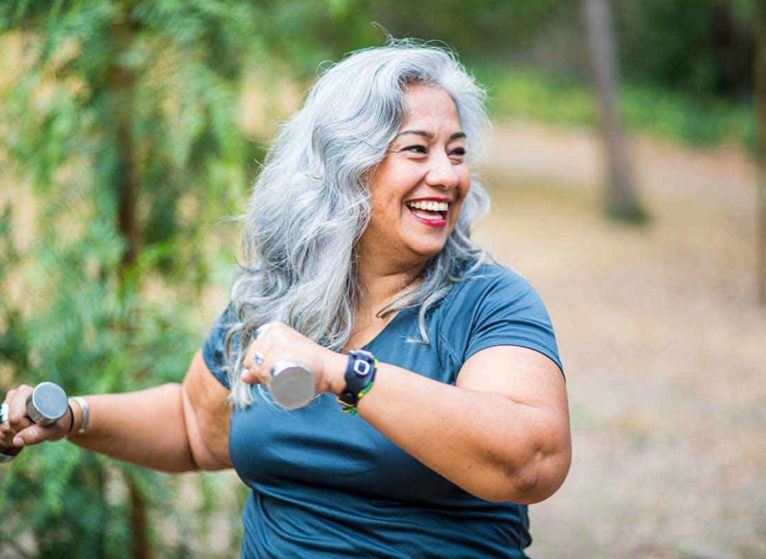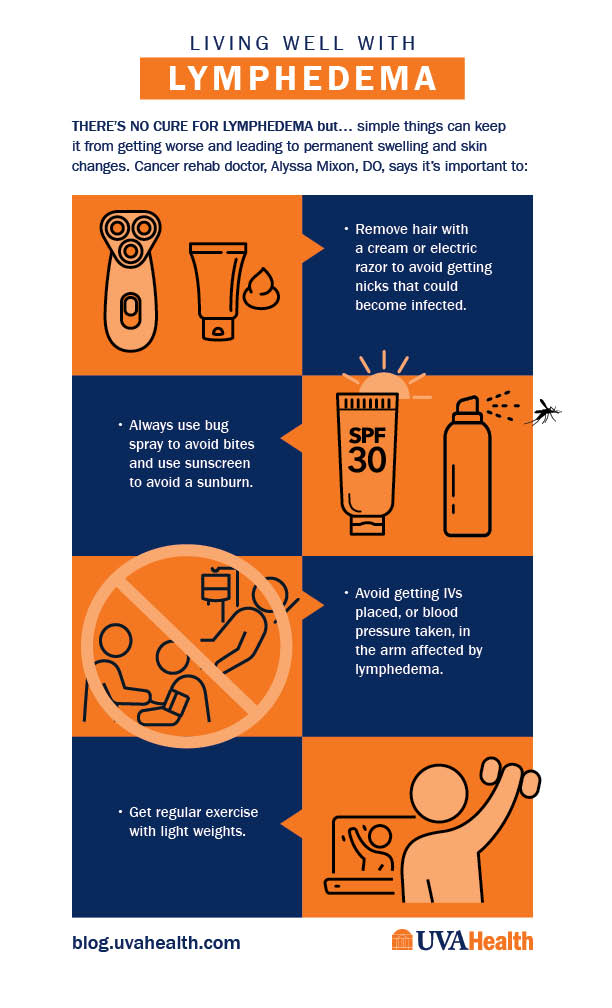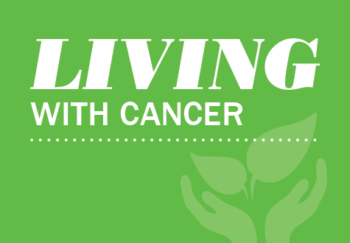Once you hear the word cancer, all you can think of is doing everything to get it out of your body. You’ll need a surgeon and perhaps experts in chemo, radiation, and other lifesaving therapies. Cancer rehab is probably the last thing on your mind — if you even know what it is.
But you’ll want to add a cancer rehab doctor to your care team.
That’s because cancer treatment can bring unwanted physical side effects. During treatment, you may face pain, fatigue, weakness, and insomnia. Some side effects, like lymphedema, can linger your entire life.
So, What IS a Cancer Rehab Expert?
Cancer rehab doctors, nurses, and therapists work with patients before, during, and after their cancer treatment. Cancer rehabilitation is a newer field. You're not alone if you've never heard of it. Even some doctors don’t realize these experts can help you:
- Be in shape to better face cancer
- Get relief from muscle or nerve pain
- Regain your strength and range of motion after surgery
- Diagnose and manage lymphedema — a common side effect of breast and other cancer treatment that can lead to arm or leg swelling and heaviness
“When someone is newly diagnosed with cancer, they get so much information and all they hear is 'cancer'. So when it comes to dealing with side effects, they put that information on the backburner. I don’t blame them. They want to get through the chemotherapy, the surgery, the radiation,” says Alyssa Mixon, DO, MBA.
Mixon and Regan Royer, MD, MPH, run the cancer rehab program at UVA Health Cancer Center.
The sooner you see a cancer rehab expert, the better equipped you'll be to get through treatment. Mixon says, “Many cancer patients who experience pain, limited range of motion, and weakness after cancer treatment often think, ‘It’s my new normal.’ But these issues they’re having are not normal. These are things we can address.”
Why You Need a Cancer Rehab Expert Before Treatment
Care for side effects before you get them might seem strange. But it's the best thing to do for your long-term health.
At UVA Health Cancer Center, you can have a simple test done before cancer surgery to help diagnose lymphedema as early as possible. Early diagnosis means less risk of progression of lymphedema. UVA Health is one of few places to offer what’s known as a bioimpedance spectroscopy machine.
You won’t feel a thing as this machine sends an extremely low-strength electric current through your body. The current can tell experts if your lymphatic system is impaired. You can start therapy, and even be fitted for a compression sleeve or stocking, long before you show lymphedema signs like arm swelling and heaviness.
Why You Need to Prepare for Lymphedema
Treatment for breast and other cancers often involves removing lymph nodes. These small glands often carry cancer when it first spreads from its source. These lifesaving treatments can lead to lymphedema. Lymph fluid backs up, causing swelling. Part of your immune system, this protein-rich fluid filters out harmful viruses, bacteria, and waste. Lymph fluid helps heal skin injuries, like a cut or bug bite.
Anywhere from 8-40% of breast cancer patients develop lymphedema, Mixon explains. It most likely happens in the first or second year after cancer treatment. But it can happen at any time. For instance, she adds, “Years after breast surgery, someone can get a bug bite. This can lead to an infection and trigger a flare up of swelling.”
Get Help from a Lymphedema Specialist
If you do develop lymphedema, you can get help from Sara Yoder. This physical therapist who’s a certified lymphedema therapist can help:
- Reduce swelling with a special massage technique and regular compression wrapping sessions, done over 3 to 4 weeks
- Fit you for compression clothes garments like a special sleeve for your arm to reduce risk of progression of lymphedema. (These come in fun colors and designs as well as solid colors, Yoder notes).
- Teach you how to do a special type of massage and wrapping to improve the movement of lymph fluid
“Lymphedema is a condition that patients can learn to manage on their own,” Yoder says. “They just need to have those skills that we can teach them. And if they develop any issues, they can come back anytime to see one of our cancer rehab doctors."
Face Cancer in Your Best Shape
Schedule an appointment
So Many Reasons to Make Exercise Your Friend
Facing cancer in your best shape can help you better confront the hard road ahead.
“The tumor itself can deplete your body of nutrients and energy and make you feel very deconditioned and weak. On top of that, as effective as chemotherapy is at treating cancer, it can have side effects that are toxic to the body,” Mixon says.
She adds that extensive research shows that exercise can be safe and effective for cancer patients at all stages of treatment. Her advice: Strength training, using 5-10 pound weights, to keep swelling down.
But don’t go it alone. An expert can customize a routine. They can choose exercises that are safe and most effective for you.
“During and after treatment, exercise can improve your quality of life and decrease anxiety, depression, fatigue, and sleep disorders. Exercising before and during cancer treatment can help patients better tolerate treatment. Exercise can even reduce the risk of dying from cancer or the cancer from coming back,” Mixon says.
She adds, “Despite exercise’s known benefits, less than half of cancer patients participate in regular physical activity.”




I guess this wasn’t available when I was treated for breast cancer at UVA in 2018 but it makes sense. I had a month between meeting the surgeon and having the surgery. I went to my local gym, put down the money for personal training and told the trainer: “You have one month to whip me into shape” I still workout with her and have no lingering ill effects from the cancer or the treatment.